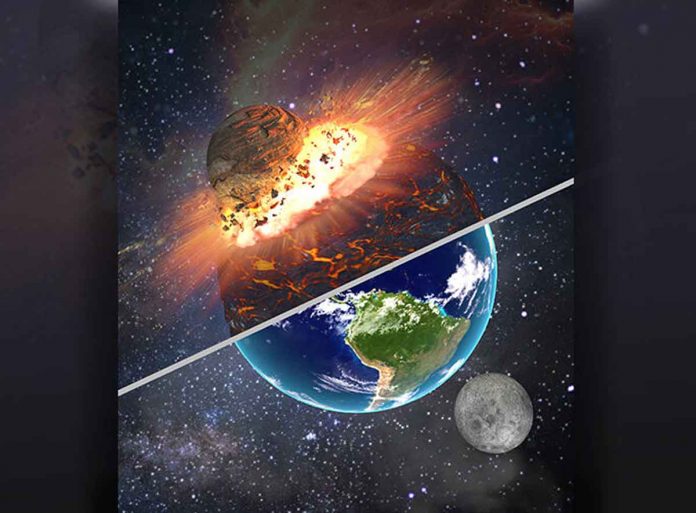The source of Earth’s water has been a longstanding debate. Lawrence Livermore National Laboratory found an answer by looking at rocks from the moon.
The Earth-moon system formed together from the impact of two large bodies. Their histories are very much linked. The moon lacks plate tectonics and weathering processes. It tends to erase or obscure evidence on Earth. The moon is actually a great place to look for clues to the history of Earth’s water.
70 percent of Earth’s surface is covered with water. But the planet is a relatively dry place compared to many other objects in the solar system. Moon is even drier. Conventional wisdom was that the lack of volatile species on the Earth was because of this violent impact that caused depletions in volatile elements.
Scientists looked at the isotopic makeup of lunar rocks. They found that bodies involved in the impact that formed the Earth-moon system. It had very low levels of volatile elements prior to the impact. Scientists used the relative amount of the volatile and radioactive isotope rubidium-87. It is calculated from its daughter isotope strontium-87. It has been determined by the budget of Rb in the Earth-moon system when it formed. They found because 87Sr, a proxy for the moon’s long-term volatile budget was so low the bodies. The collided must have both been dry to start with. There was not much that could have been added since.
This work narrowed the potential source of Earth’s water. It revealed the large bodies that collided must have both come from the inner Solar System. The event could not have happened prior to 4.45 billion years ago. It reduced the formation window of the moon. The study has been published in Proceedings of the National Academy of Sciences.

